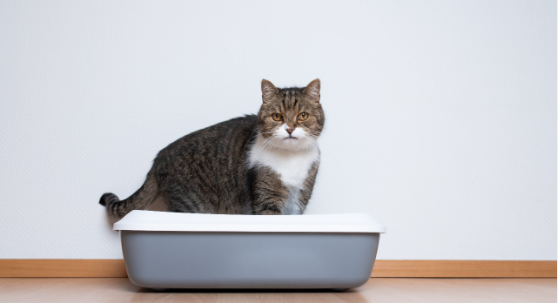What not to do with a new kitten?
Bringing home a new kitten is an exciting time full of cuddles, purrs, and playful antics. However, it’s important to remember that with ownership comes great responsibility. Proper care for a new kitten is essential to not only their health and well-being but also your own happiness and peace of mind.
The Importance of Proper Care for a New Kitten
A new kitten requires proper care in order to thrive in their new environment. This includes providing them with proper nutrition, hygiene management, medical care, safety measures, and training for good behavior. Neglecting any aspect of their care can lead to serious consequences such as illness or injury.
Furthermore, providing proper care for your new kitten can help establish a strong bond between you and your pet. It’s also a great opportunity to teach responsibility and compassion to children or other family members who may be involved in the cat’s care.
Common Mistakes Made by New Kitten Owners
New kitten owners often make common mistakes that can negatively impact their pets’ lives. These include:
- Neglecting basic needs: failing to provide adequate nutrition, fresh water supply or clean litter boxes can lead to health problems for the cat.
- Ignoring health concerns: neglecting regular veterinary check-ups or failing to identify illness symptoms early on can result in severe medical issues or even death.
- Overlooking safety measures: failing to create a safe environment by keeping harmful substances out of reach or not supervising interactions with other pets/children can lead to accidents or injuries.
- Skip training and socialization: not providing appropriate training for good behavior such as using scratching posts instead of furniture or failing to socialize kittens with other animals may lead to behavioral problems.
By being mindful of these common mistakes, new kitten owners can ensure the best possible care for their new furry family member. Proper care will help your cat thrive and grow into a happy and healthy companion for years to come.
Don’t Neglect Basic Needs
Proper nutrition and feeding schedule
Feeding your kitten the right food in the right quantity is essential to their growth and development. Kittens require a diet that is high in protein, which can be found in quality commercial kitten food.
Avoid feeding them table scraps or adult cat food, which may not provide them with adequate nutrition. Kittens also need to eat multiple times throughout the day, so it’s important to establish a feeding schedule.
Young kittens should be fed small meals every 3-4 hours, while older kittens can be fed 3-4 times per day. Always make sure your kitten has access to fresh water during and between meals.
Clean litter box and litter training
Litter box training is an essential part of caring for a new kitten. When introducing your kitten to their litter box for the first time, show them where it is located and gently place them inside.
Most kittens instinctively know what to do once they are in the litter box. It’s important to clean the litter box regularly to prevent odors and keep your kitten healthy.
Scoop out clumps and waste daily, and completely change the litter at least once a week. If you have multiple cats, make sure each cat has their own litter box.
Fresh water supply
Fresh water should always be available for your kitten to drink throughout the day. Make sure you change their water every day or even twice a day if necessary depending on how much they drink or play around with it. By providing proper nutrition, a clean litter box that’s easily accessible along with plenty of fresh water supply, you can ensure that your new furry friend stays healthy and happy while thriving under your care!
Don’t Ignore Health Concerns
Regular Veterinary Check-ups
One of the biggest mistakes new kitten owners can make is failing to take their pets to the vet regularly. Even if your kitten appears to be perfectly healthy, regular check-ups can help detect potential health problems before they become serious.
During a check-up, your veterinarian will perform a thorough physical examination of your kitten, checking for signs of illness or disease. They may also recommend additional tests or vaccinations that are appropriate for your kitten’s age and health condition.
In addition to providing preventative care, regular vet visits can also help establish a good relationship between your kitten and their healthcare provider. This will be important throughout their life as cats can be prone to various health issues such as urinary tract infections, feline leukemia virus (FeLV), and heartworm disease.
Vaccinations and Preventative Care
Vaccinations are an essential part of keeping your kitten healthy and protected against infectious diseases such as feline panleukopenia (FPV), feline herpes virus (FHV), and feline calicivirus (FCV). Your veterinarian will provide you with a vaccination schedule based on your kitten’s age and risk factors.
Preventative care includes treatments for fleas, ticks, heartworms, intestinal worms, or parasites; neutering/spaying; dental care; grooming; exercise; nutrition, etc. It is important to discuss with your veterinarian about these preventions so that they can assist you in determining what treatments would best fit the needs of your cat.
Early Detection of Illness Symptoms
Cats are masters at hiding their illnesses from their owners until it’s too late. It is imperative that pet owners watch closely for any changes in the behavior or appearance of their cats.
Early detection ensures prompt treatment which increases chances for recovery. Some signs of illness in cats include lethargy, loss of appetite, vomiting or diarrhea, coughing or sneezing, weight loss/gain, or changes in urination.
If you notice any of these warning signs, it is important to take your kitten to the vet as soon as possible. While taking care of a new kitten can be challenging at times but knowing the importance of regular veterinary check-ups and preventative care measures can help prevent serious health problems and ensure a healthy and happy life for your furry friend.
Don’t Overlook Safety Measures
Bringing a new kitten home can be an exciting and joyous occasion. However, it is important to take necessary safety measures to prevent accidents and injuries. Kittens are curious creatures that love to explore their surroundings, so it’s crucial to provide a secure environment while allowing them to roam freely.
Secure environment to prevent accidents
Before bringing your kitten home, make sure your house is kitten-proofed. This means removing any potential hazards such as electrical wires or cords they could chew on or become entangled in.
Keep cabinets and drawers closed, secure appliances and furniture that could topple over, and place screens on windows or balconies. Create safe zones for your kitten by blocking access from stairs or other areas of the house that may be dangerous.
Keep harmful substances out of reach
Kittens love to explore by putting things in their mouth, so it’s important to keep harmful substances out of reach. This includes cleaning supplies, medications, plants (such as lilies which are toxic), and any small items that they could swallow. Store these items in secure cabinets or high up out of reach.
Supervise interactions with other pets or children
If you have other pets or children at home, make sure interactions with the new kitten are supervised at all times until everyone gets accustomed to each other. Teach children how to handle the kitten gently and safely and remind them not to pull the tail or ears. Introduce the new kitten slowly and gradually to other pets in the household by using positive reinforcement techniques.
Taking necessary safety measures is essential when bringing a new kitten into your home. By providing a secure environment; keeping harmful substances out of reach; supervising interactions with other pets or children; you will ensure a safe environment for your furry friend, and this will allow you to relax and enjoy your new pet without any worries.
Don’t Skip Training and Socialization
Training for Good Behavior
One of the most common mistakes made by new kitten owners is assuming that their cute and cuddly new pet will automatically know how to behave properly in the home. However, like any young animal, kittens require guidance and training to learn what behaviors are acceptable and what are not. One of the key areas that require training is scratching behavior.
Kittens love to scratch, but without proper training, they may turn to furniture or carpets as their scratching posts. By providing your kitten with a designated scratching post from an early age, you can teach them where it’s appropriate to scratch.
To train your kitten to use a scratching post, start by placing it near their sleeping area or a favored spot where they tend to scratch already. When you see your kitten starting to scratch on furniture or other objects, gently pick them up and place them next to the scratching post.
Encourage them with praise and treats when they use the post correctly. With patience and consistency in this training method, your kitten will soon learn that the designated scratching post is the only acceptable place to satisfy their natural urge.
Socialization with Other Animals, People, and Environments
Another critical aspect of raising a well-adjusted kitten is socialization – exposing them early on in life to different environments, people, animals (if applicable), and noises so they can become more comfortable around these things as adults. This will help prevent anxiety or fear issues down the road when exposed to environments or experiences unknown.
The key here is exposure at an early age because after 16 weeks old socializing becomes harder as behaviors begin solidifying in ways that make adjusting challenging for both pet owners and pets alike. Introduce your kitten slowly by allowing them first only limited exposure outside their own home environment then gradually increase social time exposures weekly over time.
You can start with other people such as family and friends, then slowly progress to new environments like parks or outdoor spaces. If other pets are in the house, introduce them slowly and under supervision so that they can get comfortable around each other.
Remember, patience and consistency are key here too. With proper training and socialization, your kitten will grow into a confident and well-behaved adult cat ready to enjoy the world around them.
Conclusion
Bringing a new kitten into your home can be an exciting and rewarding experience, but it comes with a great deal of responsibility. By avoiding the common mistakes outlined in this article, you can ensure that your kitten receives the best possible care and grows up to be a happy, healthy adult cat. Remember to provide your kitten with proper nutrition, a safe environment, regular veterinary check-ups, and training for good behaviour.
Being a responsible kitten owner not only benefits your feline companion but also contributes to the health and well-being of the feline population as a whole. When cat owners take care of their pets properly, they reduce the likelihood of cats ending up in shelters or being euthanized due to preventable health problems or behaviour issues.
As you embark on this journey with your new furry friend, remember that kittens require patience and attention just like any other pet. With proper care and love, you will forge a bond that will last for many years to come.




